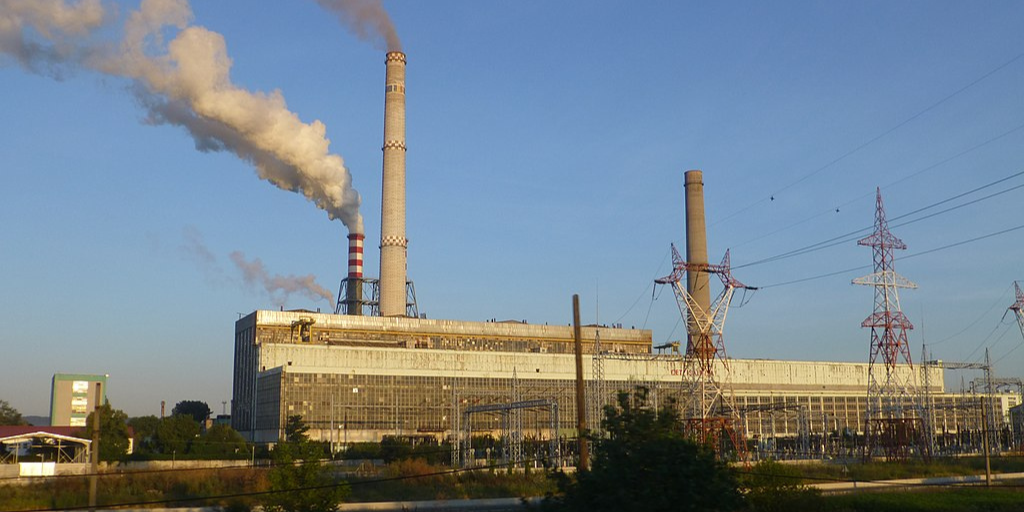EU funds fossil gas in Poland and Romania despite climate goals
More than EUR 1.5 billion in EU funds has been provided to Poland and Romania for fossil gas projects since 2014. The two governments have earmarked even larger sums for the current EU budget period despite the bloc’s goals of reducing greenhouse gas emissions, according to a report released today by CEE Bankwatch Network.
6 June 2023

User:Beroesz, CC BY-SA 2.5 HU
- Continued EU funding for projects in Poland and Romania set to deepen their reliance on fossil gas.
- Despite repeated expert warnings that fossil gas worsens the climate crisis, governments are still using EU funds to expand gas infrastructure.
- Bankwatch urges the European Commission to revise rules to stop public money being used for new gas projects.
‘Governments seeking to use EU public money for fossil gas projects that are likely to operate for the next 30-40 years, well beyond the point when Europe needs to be free of fossil fuels, are betraying their own citizens,’ says Gligor Radečić, Gas Campaign Lead at CEE Bankwatch Network and co-author of the report. ‘Any fossil gas project enabled by EU funds necessarily comes at the expense of desperately needed investments in energy efficiency and renewables in Poland, Romania and throughout Europe. The European Commission needs to urgently initiate a revision of existing EU funding rules to stop any use of EU public money for new gas projects.’
The full report is available here: https://bankwatch.org/publication/energy-insecurity-eu-funds-for-fossil-gas-in-poland-and-romania-contradict-climate-goals
EU funds such as cohesion policy funds, the Recovery and Resilience Facility and the Modernisation Fund are meant to help EU countries improve their economic standing, among other things, by upgrading energy infrastructure. Yet, spending plans in Romania and Poland for the period 2021 to 2027, analysed by Bankwatch, risk deepening the fossil gas addiction of these countries, in turn undermining their energy transition.
In Romania, the authorities have earmarked roughly EUR 1.7 billion in EU funds for new fossil gas projects, such as a gas-fired unit at the Ișalnița power plant and the expansion of the Bilciuresti underground gas storage facility.
And in Poland, fossil gas projects such as the new LNG terminal in Gdansk, new transmission and distribution networks, and subsidy schemes for gas boilers in buildings could receive over EUR 2 billion in EU money.
The science is unequivocal: greenhouse gas emissions from the extraction, transmission, storage and burning of fossil gas are worsening the climate crisis. The past year and a half has shown that fossil gas is neither a reliable nor an affordable source of energy. Yet, governments are still able to utilise EU funds for the expansion of fossil gas infrastructure because EU financing schemes allow them to do so. As long as EU funding rules make gas projects eligible, they are perpetuating Europe’s vulnerability to future fossil gas crises when either supply is curtailed or prices surge.
‘Any project or scheme that adds new gas consumption blatantly contradicts the EU’s policy attempts to steeply decrease gas use in the EU before 2030,’ the report reads.
EU public money plays an important role in realising Europe’s energy transition. But it must not be spent on fossil fuels. What Europe now needs is a dramatic increase in capital spending on sustainable renewables, electric grid improvements and measures to reduce energy demand that could help tackle both the climate crisis and the energy crunch. To achieve this, EU policy-makers need to urgently update the legislative framework governing EU funds to exclude investments in gas schemes and projects.
Raluca Petcu, fossil gas campaigner with Bankwatch Romania and co-author of the report, says: ‘Between August and January, Romania has managed to cut fossil gas use by approximately 25 percent. This is a remarkable achievement, but government plans could reverse it. The plans we analysed foresee gas projects receiving four times more financing via EU funds than was allocated in the preceding EU budget period. This would be a risky decision that would greatly increase gas consumption. The government must revisit these plans and drop any project that does not contribute to reaching climate neutrality.’
Krzysztof Mrozek, Head of the EU Funds for Climate Programme at Polish Green Network and co-author of the report, says: ‘Switching from coal to gas means replacing one polluting fuel with another. With the climate crisis escalating dramatically, EU funds should contribute to climate action, not undermine it. If these plans materialise, they would only entrench Poland’s dependence on fossil gas, and it is Polish citizens who would pay for it through their energy bills. This massive waste of public money must be avoided. The climate and environment ministry must go back to the drawing board and redirect EU funding away from fossil gas and into renewables and energy efficiency.’
For further information, please contact:
Gligor Radečić
Gas Campaign Lead, CEE Bankwatch Network
gligor.radecic@bankwatch.org
+385977454467
Krzysztof Mrozek
Head of the EU Funds for Climate Programme, Polish Green Network
krzysztof.mrozek@bankwatch.org
+48501793296
Raluca Petcu
Fossil gas campaigner, Bankwatch Romania
raluca.petcu@bankwatch.org
+40770209187
Never miss an update
We expose the risks of international public finance and bring critical updates from the ground – straight to your inbox.
